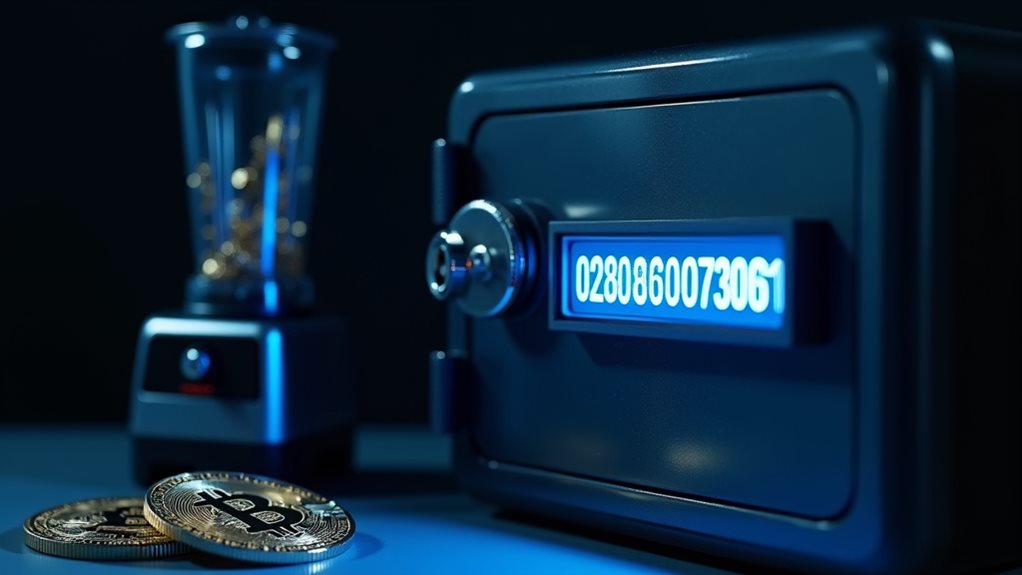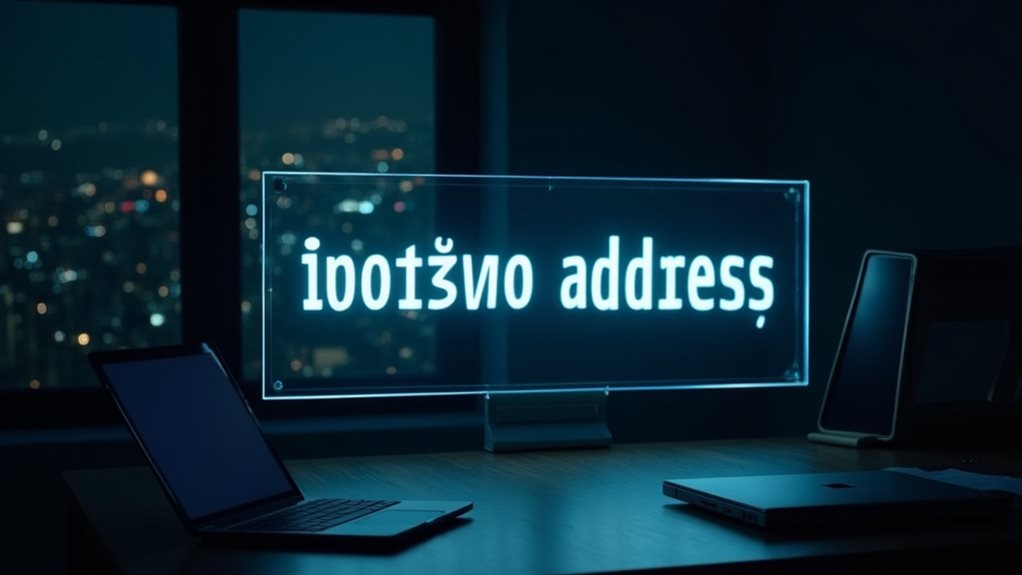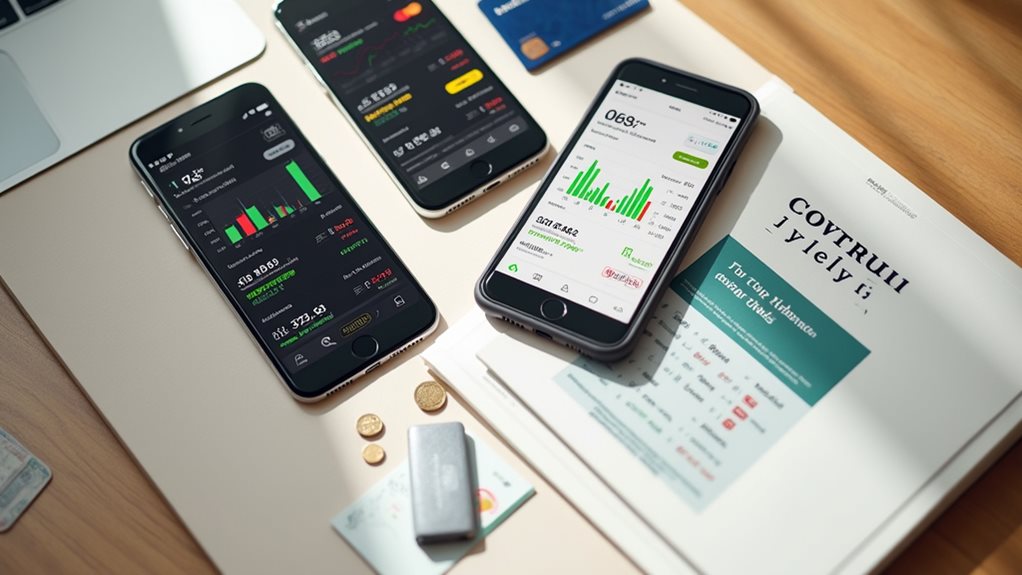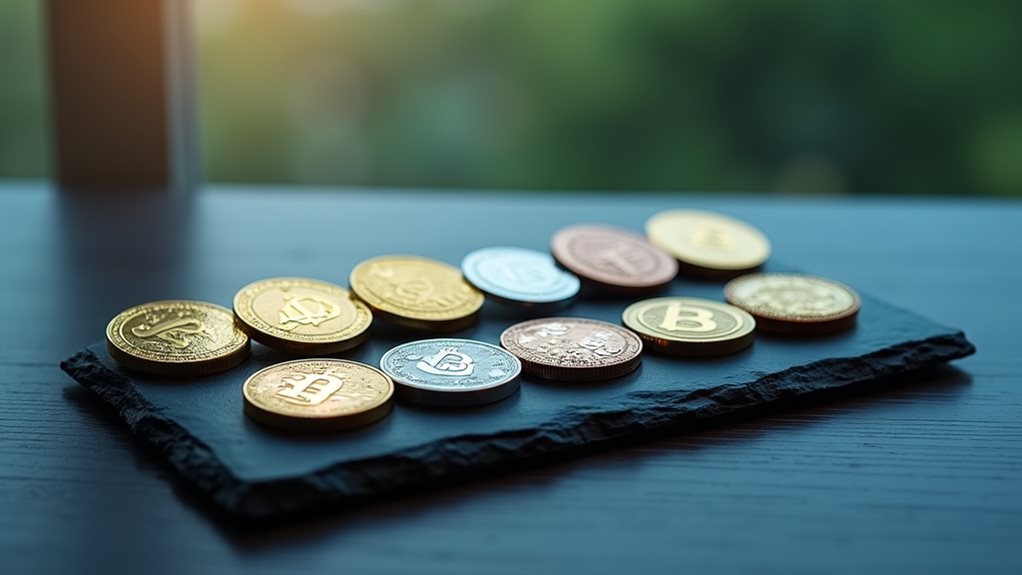A Bitcoin address is like a digital mailbox – a unique string of letters and numbers where cryptocurrency can be sent and received. It's created from a private key and works similarly to an email address for money, just way more secure. Modern Bitcoin addresses start with different characters (1, 3, or bc1) depending on their type. No bank approval needed here – anyone can create unlimited addresses. There's more to this cryptographic magic than meets the eye.

A Bitcoin address is like a digital mailbox where anyone can drop off cryptocurrency, but only the owner has the key to open it. These unique alphanumeric strings, looking like random gibberish to the untrained eye, serve as the destination points for sending and receiving bitcoin on the blockchain. Think of them as email addresses for money – except way more secure and impossible to hack (when used properly, that is). No authorization required for creating new Bitcoin addresses, making them freely accessible to anyone.
The creation of these addresses isn't simple magic – it's complex magic. It starts with a private key that generates a public key through something called ECDSA (fancy math stuff). This public key then gets transformed into the Bitcoin address you can share with others. And yes, you can turn them into QR codes, because who wants to type out 35 characters of random letters and numbers?
Bitcoin addresses come in different flavors, like ice cream but less tasty. The classic ones start with '1' (P2PKH), while their fancier cousins begin with '3' (P2SH) or 'bc1' (Bech32). Each type serves a specific purpose, but they all do the same basic job: moving bitcoin from point A to point B without a bank getting involved. The newer Taproot addresses introduced in 2021 offer enhanced privacy features and smart contract support.
There are even special "testnet" addresses that start with 'm' or '2' – they're like the practice wheels of the crypto world.
These addresses are deliberately designed to be fool-proof (well, almost). They use something called Base58 encoding, which cleverly excludes characters that could be confused with each other – no more mixing up zeros and O's. They also include a built-in checksum, which is tech-speak for "making sure you didn't mess up when typing the address."
Privacy is a big deal in the Bitcoin world, and addresses play their part. They don't reveal personal information, and you can generate new ones for each transaction if you're feeling particularly paranoid. Just don't lose the private key – that's like losing the combination to your safe, except there's no locksmith who can help you crack it open.
Modern Bitcoin wallets handle all the complicated stuff behind the scenes, generating and managing addresses automatically. They're the user-friendly face of what's actually a pretty complex system.
But remember – while addresses might look like random strings of characters, they're actually the backbone of how billions of dollars move around the Bitcoin network every day. Not bad for something that looks like a cat walked across your keyboard.
Frequently Asked Questions
Can I Change My Bitcoin Address After Creating It?
No, you can't change an existing Bitcoin address – it's permanent once created.
But here's the thing: you don't need to. Bitcoin wallets let users generate new addresses whenever they want, no big deal.
Most people actually create multiple addresses linked to their wallet. It's like having multiple mailboxes for the same house.
Want a new address? Just generate one. The old one still works, but you've got options.
What Happens if I Accidentally Send Bitcoin to the Wrong Address?
Sending Bitcoin to the wrong address is usually permanent and irreversible.
Once the transaction is confirmed, those funds are basically gone. If the incorrect address belongs to an exchange, there's a slim chance of recovery through customer support.
But with random addresses? Tough luck. The Bitcoin network doesn't have a "whoops" button.
Some lucky folks might contact the address owner for a voluntary return, but don't hold your breath.
How Many Bitcoin Addresses Can One Person Have?
There's no limit to how many Bitcoin addresses a person can have. None. Zero. Zilch.
Each wallet can generate an unlimited number of unique addresses at the click of a button. Many users create new addresses for every single transaction – it's actually good for privacy.
Some people have hundreds or thousands of addresses. Think of them like email addresses: you can make as many as you want, whenever you want.
Are Bitcoin Addresses Case-Sensitive When Typing Them?
Bitcoin address case sensitivity depends on the format.
Legacy addresses (starting with '1' or '3') are absolutely case-sensitive – mess up one letter's case and your money's going nowhere.
But here's the good news: newer Bech32 addresses (starting with 'bc1') don't care about case at all.
Still, most people just copy-paste addresses because typing them manually is like playing Russian roulette with your crypto.
Does My Bitcoin Address Reveal My Identity to Others?
A Bitcoin address itself doesn't reveal personal identity – it's basically a pseudonym.
Like a pen name for money. However, it's not totally anonymous.
Every transaction is visible on the blockchain, and there's a trail. If someone links an address to a real person (through exchanges, purchases, or data leaks), the cat's out of the bag.
Government agencies and blockchain analysts are pretty good at connecting these dots nowadays.









